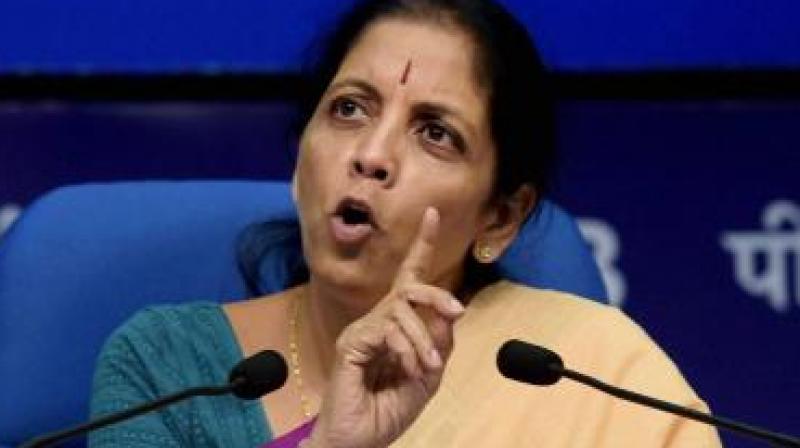India opposes EU, Canada bid on investment pact at WTO
Under ISDS, corporates can take sovereign governments to international arbitration for resolution of disputes.

New Delhi: India is opposing an informal proposal made by the EU and Canada about a global investment pact with an investor-to-state dispute settlement (ISDS) provision at WTO.
The issue was discussed at an "informal meeting" of key WTO members, including India, China, Brazil, Japan and Australia, in Davos last week.
"We rejected it (the attempt made by the EU and Canada) completely. We want anything to do with investments to be a bilateral thing... We do not believe in making investments a subject of multilateral disputes," Commerce and Industry Minister Nirmala Sitharaman told reporters here.
The minister said she is not in favour of the "contentious" investor-to-state dispute settlement (ISDS) mechanisms, which is part of a bilateral agreement between the European Union (EU) and Canada.
Under ISDS, corporates can take sovereign governments to international arbitration for resolution of disputes. Both these countries wants other WTO members to agree to this mechanism and the template to resolve investor disputes at the multi-lateral level.
"... there is no way, we will have investment treaty in which companies can take the sovereign or even the regional governments to court. Anything with regard to investments, we wanted to be settled by the domestic laws and courts and only after that... appeal outside," she said.
Sitharaman said other WTO member countries, including Argentina and Brazil, too did not support the move.
"So at this stage, to have this template for a multi-lateral approach to investment may be immature," she said.
However, the minister added that India put its view "informally" as this was an informal discussion of WTO member countries. On WTO issues, she said the countries discussed the forthcoming ministerial conference in Argentina in December.
"We reinforce that the Bali and Nairobi issues to be fulfilled," she said, adding that WTO DG Roberto Azevedo admitted that although Nairobi meeting was successful, the "process was not right".
India, Sitharaman said, wants resolution on providing safeguards to poor farmers and permanent solution for public stock holding purposes. India asked the members for detailed discussions on these issues among the groups before they meet in Paris in June.
On its proposal on trade facilitation agreement on services, Sitharaman said India will submit a proposal soon. "Many people said it is a low-hanging fruit which can be harvested," she said.
Sitharaman said that during a bilateral discussion with the EU, the bloc indicated that it will hold negotiations for the comprehensive free trade agreement only after concluding the new bilateral investment treaty with India.
"I went to check up with the EU Trade Commissioner (about when the talks could start). They are keen to get the investment agreement negotiated," she said.
Last year, India had asked all countries with which India has investment protection agreements, including the EU, to renegotiate those pacts on the basis of the new model draft text of BIT. The EU has not yet started the talks and the existing BITs with members are set to lapse from April 1.
The commerce minister also held bilateral meetings with Australia, Canada and New Zealand and all showed keenness in concluding their respective free trade pacts. Switzerland, too, has expressed interest in speeding up the negotiation for India-EFTA trade pact, the minister said.
Asked about the statement made by the new US administration on its global trade policy, she said: "We have to see how he (the new US President) is going to translate that into action."
On discussions with regard to "industrial revolution 4.0" at the World Economic Forum, she said a separate chapter of South Asia will be set up. Industrial revolution 4.0 refers to automation, use of robotics and Internet of things (IoT).
India, she said, is absolutely ready, which is already using robotics in auto and defence, but not in every sector as it has a huge skilled manpower.
"We are a manpower rich country. We are also using digitisation," she added.

